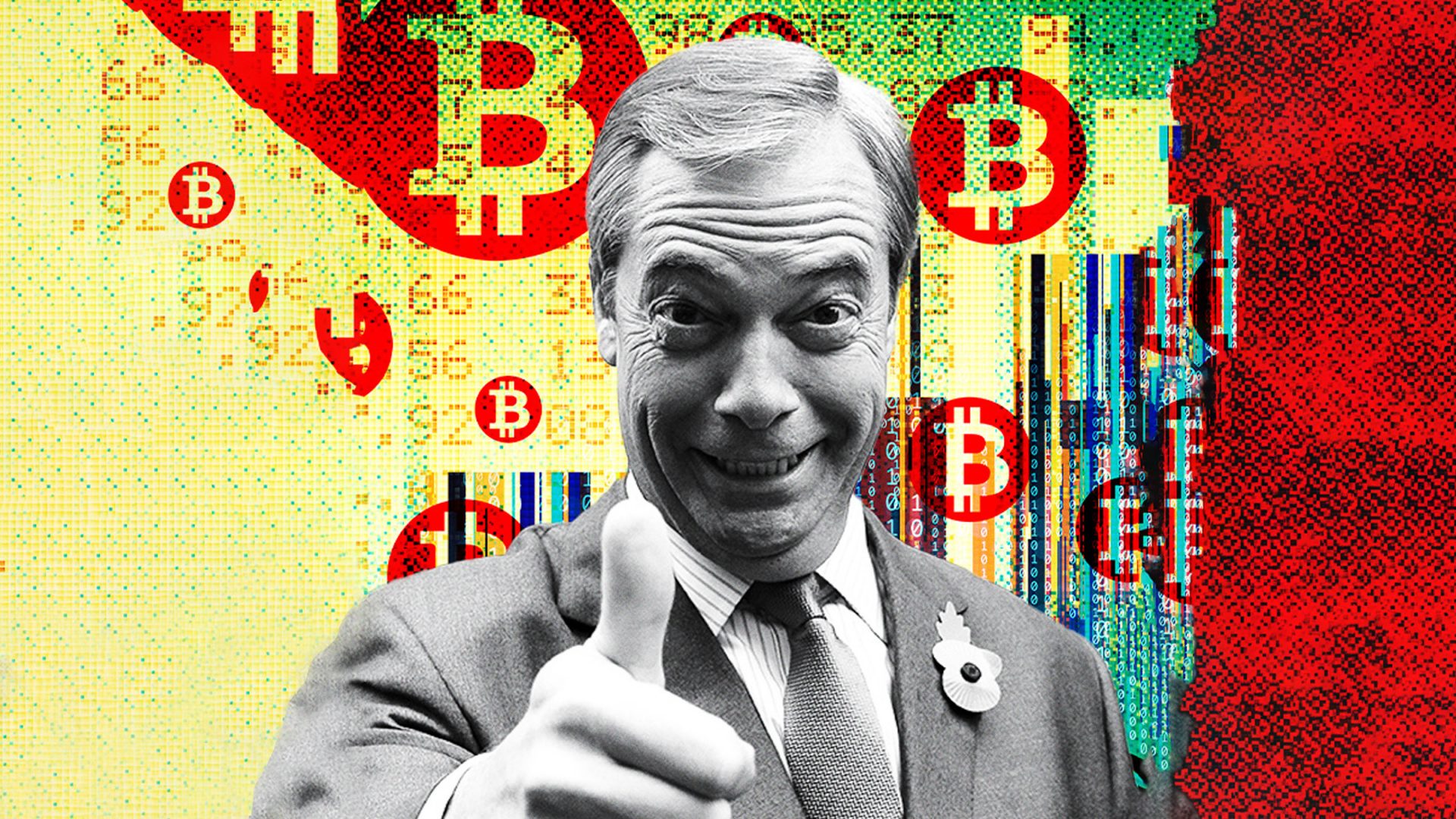Last Tuesday Nigel Farage pledged to scrap the two-child benefit cap, bring back the winter fuel allowance and enact a “marriage tax break” worth £2,500 to the average couple. By Thursday he was in Las Vegas, promising to make Britain a world centre for the trading of crypto-currencies. Reform, he said, will now take donations in Bitcoin.
In case it is not obvious, these two announcements are linked. Farage is trying to create, in Britain, a mirror image of the MAGA movement, weaving together the “family-values” crowd and crypto-coin speculators, while raking money from both of them into the Ponzi scheme that is the Reform Party.
It was obvious, even to a Tory-Reform switcher like Tim Montgomerie, that when it comes to Farage’s tax cuts, the numbers do not add up. In total, the Reform leader has now made pledges worth £85bn a year, with no convincing explanation of how he will pay for them.
He insists the books will be balanced by “cancelling net zero”, by ending diversity initiatives in the public sector and by stopping the practice of putting asylum seekers in hotels. But no reputable commentator believes that those cuts add up to anything like £85bn – even if Farage could get the two-thirds majority needed in parliament to overturn the Climate Change Act 2008.
But here’s where crypto-currencies come in. For the uninitiated, a crypto-currency is a form of digital gold: issued in finite sums, and existing only in the form of a digital ledger, currencies like Bitcoin are designed to rise in value as demand for their use increases.
And what is the primary driver of demand? It is right wing ideology, which has stated – as far back as Milton Friedman – that welfare policies intrinsically destroy the value of currencies backed by central banks, because governments run up debts to pay for them and then allow inflation to erode the value of people’s savings.
“Cryptobros”, as the young libertarian males attracted to these currencies are called, typically believe that deficit spending is a form of taxation, and that all states are involved in an undeclared conspiracy to erode the incomes and savings of their populations. Crypto – a currency without a state or central bank, and unable to be taxed – is the ultimate escape hatch from welfare-based capitalism: the monetary equivalent of that other libertarian fantasy: living in an ungoverned submarine community on the sea bed. Or Mars.
Now let’s consider the unstated logic of Farage’s economic proposals. First, he pledges to do a Liz Truss-type tax giveaway that, being a former City trader, he knows will tank the bond market and quite possibly trigger a “sudden stop” of capital investment, as it did in September 2023. Next he offers consumers a hedge against such eventualities: to park their money in Bitcoin.
Waving a copy of a draft “Crypto-currency Act” at the mesmerised suckers in Vegas, Farage promised to make it impossible for banks to pull services from people holding or trading crypto – despite the fact that crypto is the chosen currency of international organised crime, terrorism and corruption. Oh, and, while you’re at it, the ever-present panhandle is held out for donations – to a party that is, let us remember, a limited company.
In short, Farage is not only threatening openly to crash the financial markets, he is offering the true believers a way to insure themselves against it when he does.
If you think about it, it’s like a story from the Babylonian creation myth: a great deluge is coming, but you are the chosen ones who will survive it, if you will only board my Ark and make me king once we survive.
And it is dangerous. Annaliese Milano Merfield, a fellow at the Robert Schuman Centre, who has studied the culture and behaviour of crypto-enthusiasts, concludes they are typically “social constructionists” – that is, people who believe reality is constructed of thoughts, not things – “who see money and value as linked to power and agency”. They also, she notes, actively use “performativity” to boost the value of their holdings: the more you talk about Bitcoin, hyperventilate about it, make extravagant claims as to its future success, the more the value of your holdings rise.
In this, I would add, there is a strong overlap with the way far right movements traditionally proliferate. If you remember QAnon, in which thousands of deluded Americans thought they were co-creating a new political reality, when they were in fact simply swallowing a bunch of lies, the dynamics are pretty similar.
What Farage is doing, fundamentally, is myth-making. Just as he spreads nonsense about migrants and asylum seekers, by actively backing the deregulation of crypto-currencies, he is opening the possibility of an ungoverned financial space.
And though he says he will only accept Bitcoin donations from UK citizens, with cryptocurrencies, the clue is in the name. It will be impossible for either banks or the Electoral Commission to see the paper trail that might bring Bitcoins from far right Americans or Russians into Reform’s coffers, and indeed is impossible for Reform itself. That’s something the Commission should be investigating urgently.
I believe that in the long term most Bitcoin holders who bought during its post-Covid upswing, during which the value of the currency quadrupled, will lose their shirts. There is nothing wrong with playing the bull market in stupidity – but you must know the right time to get out of it.
And guess what: there is no way of knowing when Nigel and his pals will do exactly that. And when they do sell all their crypto, they’ll leave the suckers who bought on the basis of all the hype to carry the can.
